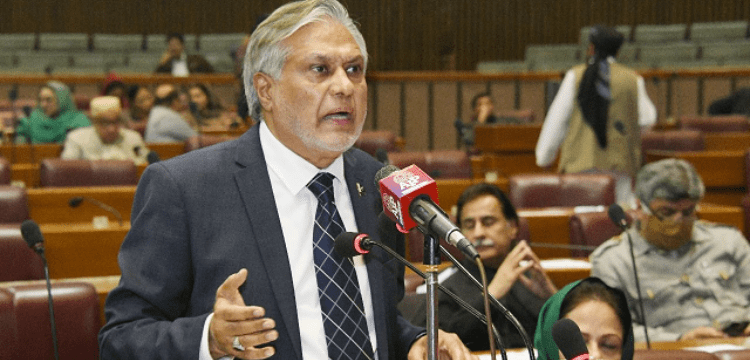[vc_row][vc_column][vc_column_text dp_text_size=”size-4″]The National Assembly passed the Finance (Supplementary) Bill, 2023 aimed to amend certain laws relating to taxes and duties.
Minister for Finance Ishaq Dar introduced the bill in the House on February 15, and the formal debate started on it after moving a motion by Minister for Commerce Syed Naveed Qamar on February 17, 2023.
In his concluding speech, the Minister for Finance and Revenue Senator Muhammad Ishaq Dar said that this bill proposed to impose new taxes of Rs 170 billion to minimize the fiscal deficit.
He said that his economic team had hectic routine during last ten days and it held talks with the International Monetary Fund (IMF) to revive the program, during which it agreed to take some tough decisions for streamlining the deteriorating condition of the economy.
He said the new revenue measures would not affect the poor segments of society. In order to help the poor cope with the rising inflation, he said the government had also proposed a Rs 40 billion increase in the budget of the Benazir Income Support Program (BISP).
The government has proposed to increase the BISP budget from Rs 360 billion to Rs 400 billion, by allocating additional funds of Rs 40 billion to benefit the (BISP) beneficiaries,” he added.
He said Senate Standing Committee on Finance has proposed some amendments related to federal excise duty on air tickets to different countries which have been adopted.
The minister said that every cigarette brand would pay the duty as per category which it had been paying before the introduction of the bill.
Ishaq Dar expressed satisfaction with the performance of the Federal Board of Revenue (FBR) and hoped that the revenue collection target set for the year 2022-23 would be achieved easily. The additional proposed tax measures of Rs 170 billion, he added, were not meant to bridge the gap of the collection target, rather the same would help minimize the budget deficit for the FY23.
He said the IMF was much concerned over the huge losses, such as the power sector was facing losses of around Rs 1,450 billion per year. He said that a total amount of Rs. 3,000 billion is being spent to generate electricity while the government collects only Rs 1,550 billion.
He said that due to power theft, line loss and non-payment of electricity bills, the government was facing about Rs 1450 billion deficit.
The minister said that both houses of parliament talked about reducing the expenses and the Prime Minister would give a comprehensive road map in coming days for austerity measures.
Ishaq Dar also criticized the economic policies of the previous government and said that poor management and lack of fiscal discipline damaged the economy.
He said that PTI government did not fulfill commitments with IMF and sabotaged the economy before its ouster. It was the obligation of the State to honor the agreement signed with IMF so the present government was implementing point agreed by the PIT government.
Ishaq Dar said due to the reforms being taken by the incumbent government, the economy would first get stabilized and then witness rapid growth in the coming years.
He said the new revenue measures would not affect the poor segments of society as most of the new taxes were being imposed on luxury items not used by them.
The minister also thanked the members from both houses of parliament for their recommendations on the bill. He said their feedback has been reviewed and it would be incorporated in the upcoming budget.[/vc_column_text][/vc_column][/vc_row]











